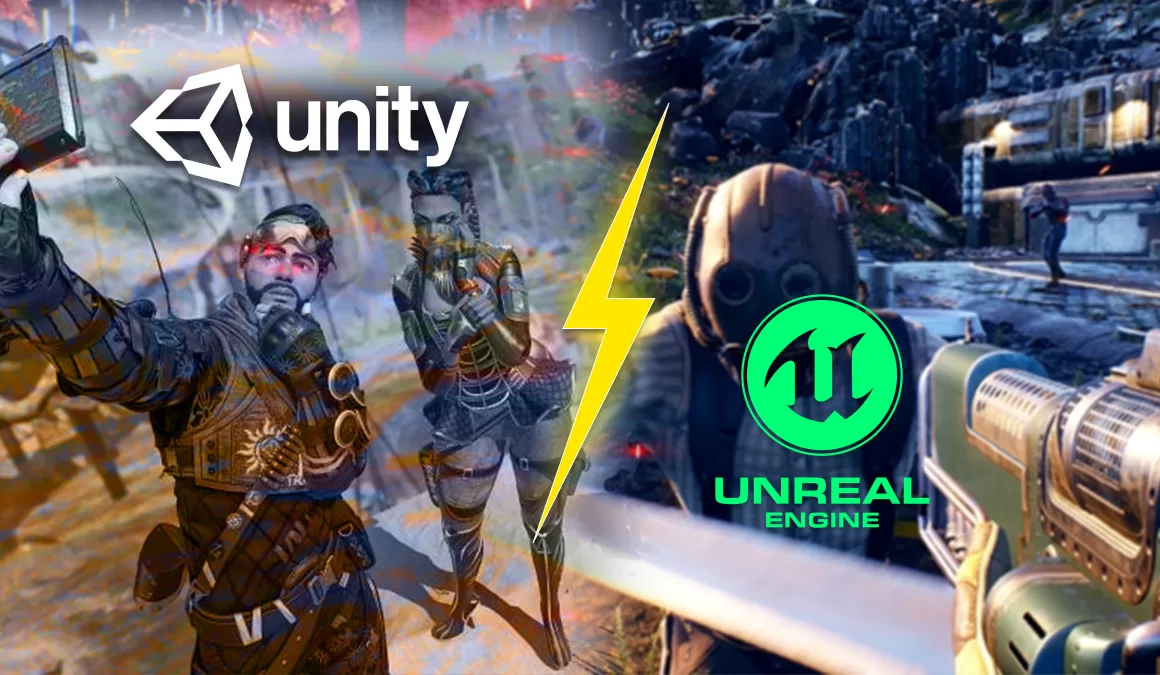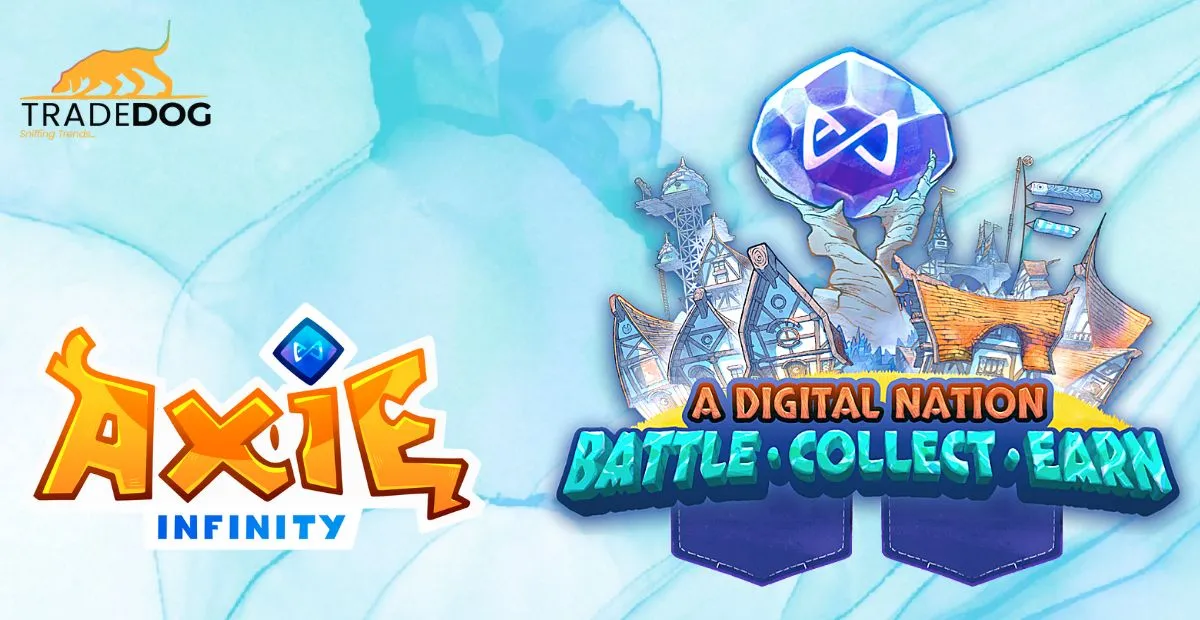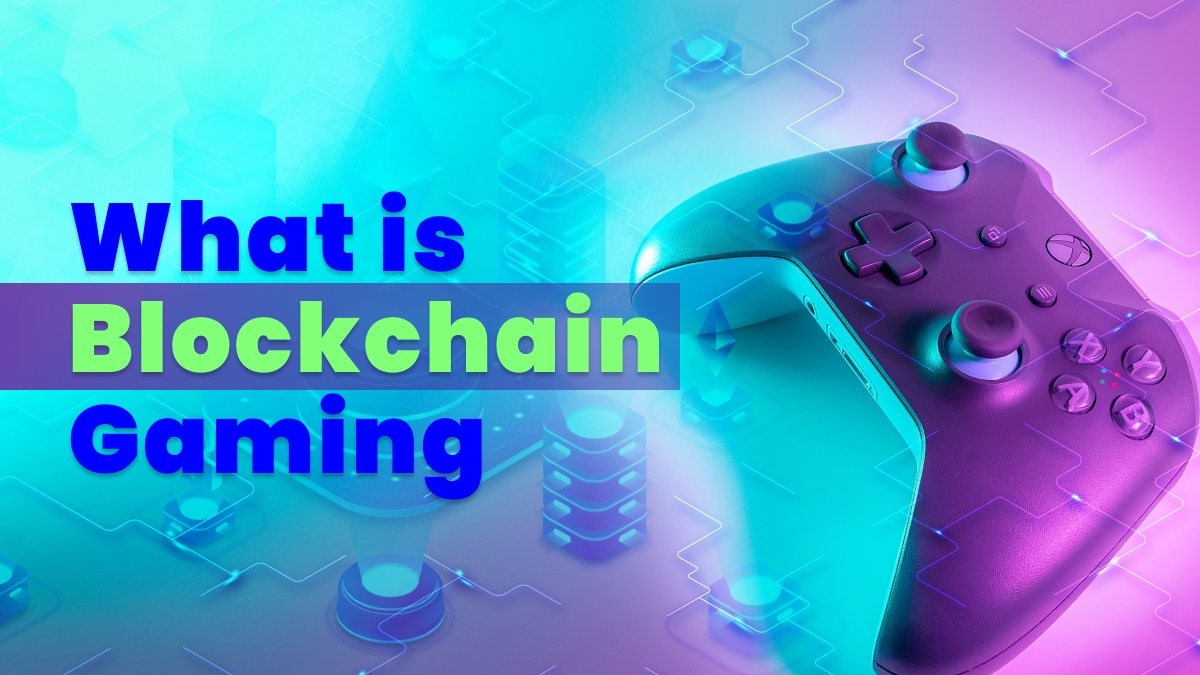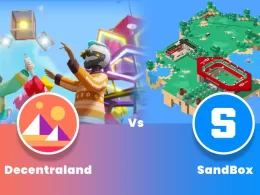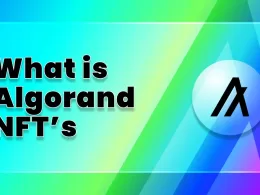Quick Links
When creating blockchain games, game developers have two major options in terms of which gaming engine they should choose: Unreal Engine and Unity. These game engines have unique features, strengths, and weaknesses that make them suitable for different types of blockchain games. In this blog post, we’ll compare Unreal Engine and Unity to help you make an informed decision on which engine is best for your blockchain game project.
What is Unity Game Engine?
Launched in 2005 (for Mac OS X), Unity has evolved exponentially as a digital game development engine. It uses C# as its underlying coding language and is free to use at basic levels. With an ‘easy to understand’ workflow and architecture that is more effective in creating games, Unity supports high-quality game creation and smooth frame rates with HD audio support.
While having dedicated tools for seamlessly creating 2D & 3D games, Unity scripting APIs provide precise control over game features and creators can have access to a wide range of 3D assets from Unity’s asset store.
Multiple web2 flagship games are built on Unity which is massively popular. Some of these games include titles like Pokemon Go, Call of Duty (mobile), Fall Guys, Hollow Knight, etc. Most of these games are mobile-based and consume less storage space than heavy AAA games.
What is Unreal Engine?
Unreal Engine is a game engine developed by Epic Games and is one of the most popular and widely used game engines in the industry. It is a powerful and feature-rich engine capable of creating high-end graphics, realistic environments, and complex animations. Unreal Engine is also known for its ability to handle complex logic and scripting, making it a suitable choice for creating large-scale, complex games.
The first generation of UE was launched in 1995 and since then, it has evolved exponentially with time. Currently, Unreal Engine 5 is live (Nanite Engine launched in 2022), which allows developers to import 3D graphics and photographs and create a photo-realistic environment in their games.
Alongside, Unreal Engine has kept its source code open, allowing anyone to use and develop through it. However, the catch here is that Unreal Engine takes a specific percentage from every game building on it as a royalty, providing it fractional ownership. As of now, the platform charges a 5% royalty which is calculated on the amount generated above the initial $1 Mn in gross revenue.
Using Unreal Engine, many web2 gaming studios have delivered highly interactive AAA games like Fortnite, Dragon Quest, Mortal Kombat, etc. Talking about web 3 space, there are projects like Megaverse ~ building a photorealistic metaverse, enabling mass adoption of the web3 ecosystem.
Comparison
| Parameters of Comparison | Unity | Unreal Engine |
| Code language | C# | C++ |
| Asset Library | 16K+ | 65K+ |
| Cost | Basic version is free, PRO costs $1500 (one-time purchase)/ $75 (monthly) | Free |
| Graphics Quality | Excellent graphics overall but doesn’t integrate photo-realistic graphic technology. | Photo-realistic graphics (AAA quality) |
| Cross-platform support | Supports mobile, PC, consoles, AR/VR | Supports mobile, PC, consoles, AR/VR |
| Source code | Restricted source code | Open source code |
| Learning difficulty | Easy to learn with a Seamless UI | Difficult to understand as compared to Unity |
| Owned by | Unity Technologies | Epic Games |
Asset Library data source: hackr.io
On which Engine are the Flagship Web 3 games built?
Most prominent web3 games & metaverse like Sandbox, Decentraland, Axie Infinity, and Cryptokitties, are built on Unity. The fact that unity is widely used by beginners & amateur indie game developers along with its wide assortment of 3D assets is one reason why most blockchain games leverage it for development.
The newest version of Unity’s plugin Arkane allows game developers to integrate blockchain technology in games and use the blockchain as an inventory to store the gamers’ assets (as NFTs). The Arkane system eliminates the complexities of blockchain integration with games, enabling gamers with no crypto & blockchain knowledge to play games and earn (by playing P2E, and P&E games). Unity is the most popular engine in web2 and web3 game development allowing developers to publish their in-game assets from its asset library to Polygon Blockchain through its SDK, without having publishers have knowledge about blockchain and smart contracts.
However, with the evolution of Blockchain & Web 3 gaming, many studios are now shifting to Unreal Engine, aiming to deliver AAA-level games & metaverses to the audiences. Illuvium is one of the early projects in the crypto gaming space that is in development for around 2 years now and aims to deliver the first AAA game that integrates NFTs and revolves around a Play to earn economy. However, the games built on Unreal have to incur heavy server costs because of the heavy packet sizes of the game assets & files, making the overall structure more centralized at the backend. The NFT integration on Unreal Engine can be done by the creators by using a specific workflow and an Unreal Engine extension.
Which Engine should you prefer?
When it comes to choosing an engine for game development, it completely depends on some factors.
Level of Expertise: Although both Unity & Unreal Engine have a user-friendly interface, Unreal is considered to be more complex for beginners because of the high-powered set of features it offers along with a large code base. Unity on the other hand is considered the best for newbies because of its simplicity and ease of use. Unity has a wide range of developers, documents, and tutorials that can help a rookie to start learning and using it in less time as compared to Unreal Engine.
Performance: Both engines have a wide range of assets library for in-game assets and support high-end graphics. However, in terms of exceptional graphics (AAA) quality & high performance, Unreal Engine is considered the flag bearer as it has a range of advanced rendering & physics features and supports multi-threading and parallel processing, ultimately allowing creators to develop games with detailed graphics and realistic physics.
Cross-Platform Support: Both engines exhibit cross-platform support including mobiles, consoles, AR/VR, and PCs. However, Unity has better support for mobile devices as it is designed specifically to be more light and seamless to use. Unreal Engine on the contrary has better support for high-spec loaded PCs & consoles as it hosts high graphic performance and lightspeed rendering which is required for such devices.
Conclusively, it completely depends on the vision, skillset, and requirements of the creators for choosing an engine. If a creator is new in the space and wants to explore more while developing, Unity is the best option to go for. On the flip side, if a developer is highly expert and equipped with the proper skillset, Unreal Engine is the best choice to develop a high-end web3 game.





